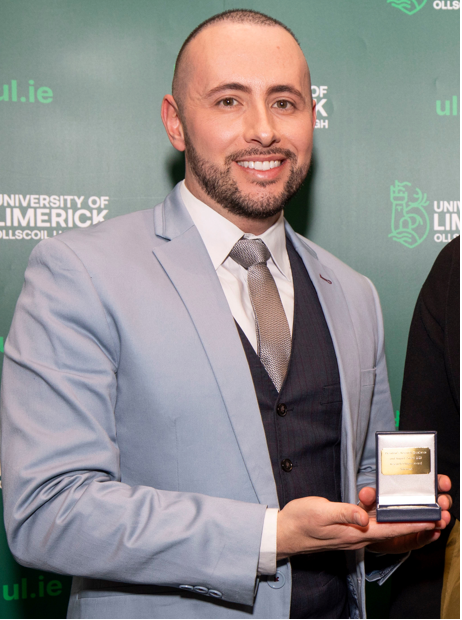
Two University of Limerick researchers have received more than €1.5 million in funding to carry out ‘high-risk, high-reward’ research.
Professor Daniel Granato, Department of Biological Sciences and Associate Professor Shalini Singh, Department of Chemical Sciences have received the funding under the Taighde Éireann – Research Ireland Frontiers for the Future Programme.
The programme provides opportunities for investigators to conduct highly innovative, collaborative research with the potential to deliver impact, while also providing opportunities for high-risk, high-reward research projects.
Professor Granato has received €727,520 for the APPLE-BIO project to research how to break the link between obesity-related inflammation and oxidative stress by bioavailable compounds from apple pomace delivered in novel dairy beverages.
The consumption of dietary fibre is estimated to be less than 25 g/day in the EU. Yet, in Ireland, 60% of the population is overweight or obese, overwhelming the public health system. Considering these issues, APPLE-BIO will concentrate polyphenols and fibre from Irish apple peels from the processing of apple slice and cider, microencapsulate them, and design functional beverages. The fate of apple peel polyphenols will be studied using an in vitro digestion and absorption system, and their effects on neuronal, gut, and adipose cells will be studied. The regulation of oxidative stress and low-grade inflammation caused by obesity will be studied at a molecular level. APPLE-BIO contributes to the environmental sustainability and circularity of the Irish agroindustry and, ultimately, provides data to aid the design of functional foods using agro-industrial side streams.
Associate Professor Singh has received €819,775.20 to conduct research into nanocrystals [NANOABZ].
Discovery of new compounds with new technological properties is important for all fields of chemistry. In the field of semiconductor nanocrystals, many earth-abundant and non-toxic compositions with existing properties as predicted theoretically still await to be synthesised. NANOABZ aims to conduct accelerated discovery of novel ABZ nanocrystals (A-alkali metal, B –transition metals/pnictogens, Z is chalcogens) by bottom-up colloidal synthesis approaches. By using a multi-faceted approach of studying reaction kinetics, surface chemistry and structure-property relationship by experimental and computational approaches, NANOABZ will be a route to the systematic discovery of hitherto missing, realisable functional materials.
A total of 40 projects worth €26 million are being funded from 12 institutions. Two of the projects are being funded by Children’s Health Foundation and they are co-funding a third.
Announcing the successful projects, Minister for Further and Higher Education, Research, Innovation and Science Patrick O’Donovan TD said: “I am pleased to announce the Research Ireland Frontiers for the Future projects, which support high-risk, high-reward research endeavours. The selected projects, spanning 12 research institutions, bring fresh and innovative ideas that will help boost business and benefit society.”
Research Ireland Interim Chief Executive Officer Celine Fitzgerald added: “The Research Ireland Frontiers for the Future programme helps to build research capacity, expertise and reputation. This latest round of grants will support a diverse range of research positions and represents a strong commitment to developing future talent in key areas.”
Among the other projects to receive funding are:
- A gene therapy combined with tissue engineering to reduce scarring and help promote nerve regeneration after spinal cord injury
- Understanding the stability of large icesheets in Greenland and Antarctica in response to global warming
- Novel therapies for severe, currently untreatable childhood-neurological disorders
- Alternative battery technologies for Electric Vehicles
- Assistance dogs with collar sensors to signal and alert of impending seizures to patients and their carers
- Studying preserved bog plants to better understand what drought bogs can survive
- Biosensors in 4D food printing that indicate strength and stability of probiotics
The research will be undertaken in the following research bodies for a period of two to four years.
Full list of Research Ireland Frontiers for the Future funded projects.
Find out more about Professor Daniel Granato's and Associate Professor Shalini Singh's research

